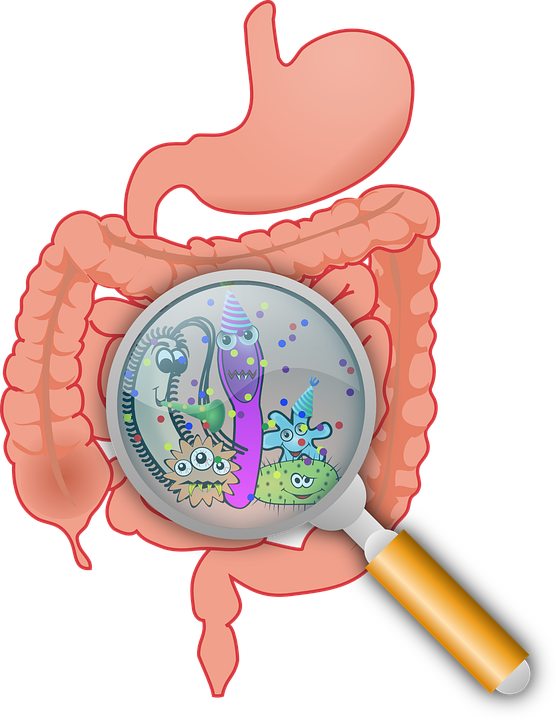The Microbiome: Bugs In and On Us!
 The Microbiome is the name given to the genetic material of all the “bugs or microbes” that live on and inside the human body. A majority of these microbes live in the gut and include bacteria, viruses, fungi and protozoa.
The Microbiome is the name given to the genetic material of all the “bugs or microbes” that live on and inside the human body. A majority of these microbes live in the gut and include bacteria, viruses, fungi and protozoa.
It is estimated that the human gut alone is colonized by over 100 trillion bacteria from 200-1000 distinct species. Lesser numbers of microbes can be found on the skin and in the mouth, nose and vagina.
Altogether, the number of microbes in the body outnumber that of the human organism by 10:1, the populations of these microbes are more diverse and eclectic, and everyday new species and genes with unique or previously unknown functions are being discovered!
This fledgling field of research is fascinating because it provides some answers to questions about what really determines an individual’s health and susceptibility to common disease conditions; it shows to be true that there are geographic differences in health that are related to the composition of the gut bacteria, and is demonstrates that changing the gut bacterial composition can impact disease states.
Already, as the science is advancing, there are multiple attempts to prematurely commercialize the nascent findings to supposedly impact health.
You will likely run across companies that for a fee, will analyze your stool and provide you with personalized recommendations for ways to improve your health and impact disease conditions by changing the microbiome, e.g. https://www.ubiome.com, https://www.viome.com, https://www.enterome.com/, https://www.daytwo.com/.
Some are even offering FMT (fecal microbiome transplants): https://www.openbiome.org, PowerofPoop through a laboratory interface.
This therapy (FMT) is only recommended and valid if performed under very controlled medical supervision, for persons who have suffered repeated bouts of severe, non antibiotic responsive diarrhea called pseudomembranous colitis, caused by a bacteria called Clostridium Difficile – a family member of the bug that cause botulism.
In addition, as can be expected, not all attempted transplants have the expected results and go as planned because not all donor samples are as “clean” as we would like to think.
Please resist the urge. The science has not caught up to the enthusiasm. There are too many unanswered questions, an abundance of correlational data that is being exploited prematurely, and not to mention the safety and ethical conundrums in this emerging field of research.
Numerous questions remain that once answered will provide a better understanding of what we are dealing with as far as this colonizing faction is concerned. Answers that will guide how best to utilize and exploit the knowledge to develop viable therapeutic interventions, if appropriate and safe.
For now, it is important to understand that the bacteria and the other microbes in the gut play a significant role in keeping us alive and healthy. For example,
- They have important roles in helping us digest our food by producing essential vitamins
- They are instrumental in keeping our immune systems healthy and responsive
- The resident population help determine what a person can an cannot digest
- Emerging information is showing that they play a role mental and behavioral health
Some questions we will attempt to follow the emerging research on and discuss further include:
- How is the microbiome established and does it change over time?
- What are the beneficial and detrimental interactions that exist between the host and the microbiome?
- Are these interactions species specific or are they dependent on other factors like diet, environment, genetics, etc?
- How do changes in the diet affect the microbiome
- How does the microbiome affect nutrition?
- How do changes in the diet affect the microbiome?
- How can the microbiome be altered to improve health?
- What are the characteristics of the microbiome in different disease conditions?
- What is the role of the microbiome in inflammation?